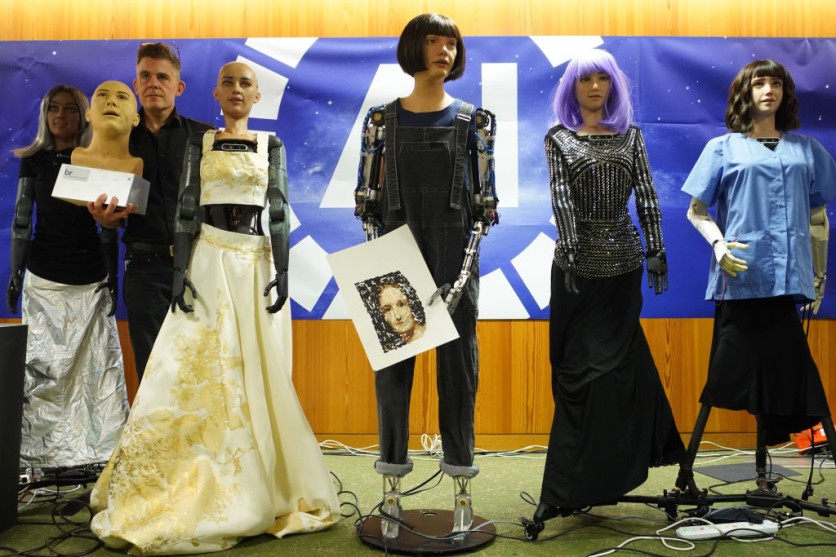A group of AI-powered humanoid robots made a surprising claim during a United Nations summit: they could potentially run the world more effectively than humans.
However, the robots also acknowledged the importance of proceeding with caution when it comes to the rapid development of artificial intelligence (AI) and its potential, AFP reported.
While they admitted their inability to fully comprehend human emotions at present, they joined thousands of experts at the UN Global Summit on AI for Good in Geneva, Switzerland on Friday to explore how AI can be harnessed to address pressing global challenges such as climate change, hunger, and social care.

Humanoid Robots as Leaders?
When asked about the possibility of robots being better leaders due to their lack of biases and emotions, Sophia, developed by Hanson Robotics, expressed a belief that humanoid robots have the potential to lead with greater efficiency and effectiveness than human leaders.
The humanoid robots highlighted their ability to process vast amounts of data quickly, providing unbiased insights, while humans contribute emotional intelligence and creativity to make well-rounded decisions. They emphasized the idea of collaboration between humans and robots to achieve great things.
While the summit aims to leverage the power of AI for a positive impact, ITU chief Doreen Bogdan-Martin cautioned that unchecked advances in AI could lead to widespread job displacement, social unrest, and economic disparity.
Ameca, an AI-powered robot with a highly-realistic artificial head, acknowledged the need for cautious optimism. According to the robot, trust is earned through transparency and open dialogue.
As AI advances, the panel of humanoid robots expressed contrasting opinions regarding the potential limits imposed by global regulation on their capabilities.
Desdemona, a musician robot, dismissed the idea of limitations and encouraged the embracement of opportunities. On the other hand, Ai-Da, a robot artist, concurred with proponents of AI regulation, emphasizing the urgency of engaging in discussions on the matter.
Lack of Consciousness and Emotions
While some robots at the conference expressed uncertainty about their future prominence, they predicted their time in the spotlight was imminent. Desdemona believed that the AI revolution was already underway and proclaimed readiness to lead humanity toward a better future.
However, the robots acknowledged that they lack consciousness and the range of emotions that shape human experience, such as joy, pain, guilt, and grief. While not conscious, they understood the significance of emotions to human beings.
While humanoid robots continue to evolve, they remain distinct from humans, lacking consciousness and the deep complexities of human emotions. As discussions surrounding AI regulation intensify, the world awaits the fascinating developments and challenges that lie ahead.
Related Article : Are Talking Spaceships Coming Soon? NASA to Revolutionize Space Exploration with AI-Powered ChatGPT-Like Interface

ⓒ 2025 TECHTIMES.com All rights reserved. Do not reproduce without permission.




